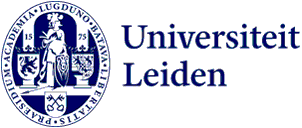
PhD survey results announced
The Graduate School of the Faculty of Humanities conducted a survey of its PhD candidates and their supervisors in spring 2023. What is going well? And what could be improved? The results are now known.
The PhD survey is a complement to the previously conducted Staff Monitor and serves to form a more complete picture of the PhD programme and its supervision. PhD candidates answered questions on topics such as communication with supervisors, the defence, career perspectives and social safety. Their supervisors addressed, among other things, the time spent on PhD supervision, their relationship with fellow supervisors and the different types of academic and personal support. In addition, there was room for respondents to raise points of their own.
Results
Overall, 25.5% of the 596 PhD candidates to whom the survey was sent completed it, compared to 35.1% of the 296 academic staff involved in PhD supervision. The majority of PhD candidates reported having weekly to monthly contact with their supervisor. They are generally neutral to very satisfied (88%) with this frequency. However, the burden seems to weigh heavily on the supervisors. Although they are neutral to very satisfied (93%) with the frequency of contact with PhD candidates, 95% of them feel that this supervision should not be counted as research time, as is currently the case.
In terms of social safety, the survey shows positive results. The vast majority of respondents have not experienced or witnessed sexual harassment (90% PhD candidates, 90% supervisors). In addition, the vast majority of respondents did not experience negative treatment based on racial, ethnic or religious characteristics (86% of PhD candidates, 94% of supervisors), gender (89% PhD candidates, 95% supervisors), LGBT+ persons (97% PhD candidates, 97% supervisors) or minority group (91% PhD candidates, 92% supervisors). That said, there are nonetheless still PhD candidates and supervisors who experience insufficient social safety within a PhD programme, faculty, university or academia and may not dare to share this in a survey. As part of a zero tolerance policy, the faculty therefore stresses that abuses must always be addressed. The results of the doctoral candidates further reveal that they regularly feel lonely or isolated (29% non-European doctoral candidates, 27% European doctoral candidates). Moreover, the vast majority of PhD candidates (89-91%) would like more communication with other PhD candidates within their own institute or university, while 67% of them experience insufficient cooperation with others in the PhD process.
Supervisors regularly seem to lack knowledge about formalities surrounding the PhD. For example, 63% of supervisors do not know what the non-scientific part of the procedure is, 63% are also unfamiliar with the procedure at the end of the PhD track and 60% do not know how the dissertation committee should be composed. Furthermore, only 44% of supervision teams agree on mutual obligations.
Improvements
A number of improvement actions are being initiated based on the findings. For instance, the Graduate School website has now been updated to improve information on rules, PhD supervision and courses offered. In addition, information leaflets are being developed to help PhD candidates and PhD supervisors find the relevant information about the PhD programme and communicate their mutual expectations. Finally, promoting social cohesion among PhD candidates has the Graduate School's attention. To this end, a faculty-wide PhD programme is being developed and several meeting opportunities, such as networking drinks, are being created.
The faculty also intends to continue to pursue a zero-tolerance policy on unsafe working conditions, and, together with the relevant departments within the faculty, is therefore developing appropriate policies, procedures and prevention measures. In addition, the Faculty Board will hold an management meeting on the supervision and recognition of PhD candidates. This will include discussion of the possibility of a compensation measure, whereby supervisors will be compensated for a part of the time they spend supervising PhD candidates, which is to be determined. After all, most PhD students in the humanities are not part of their supervisor's research, which means it is unfair to consider this supervision as research time.
